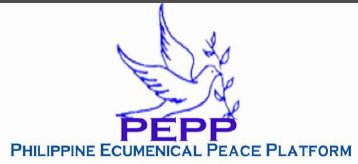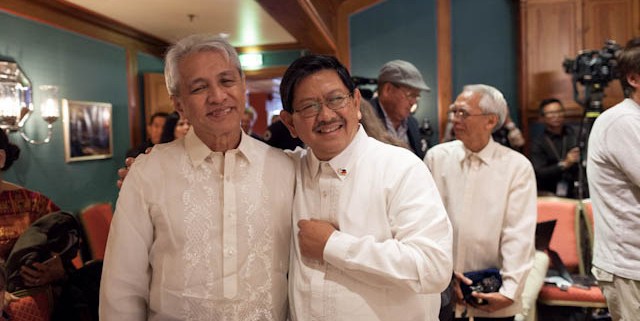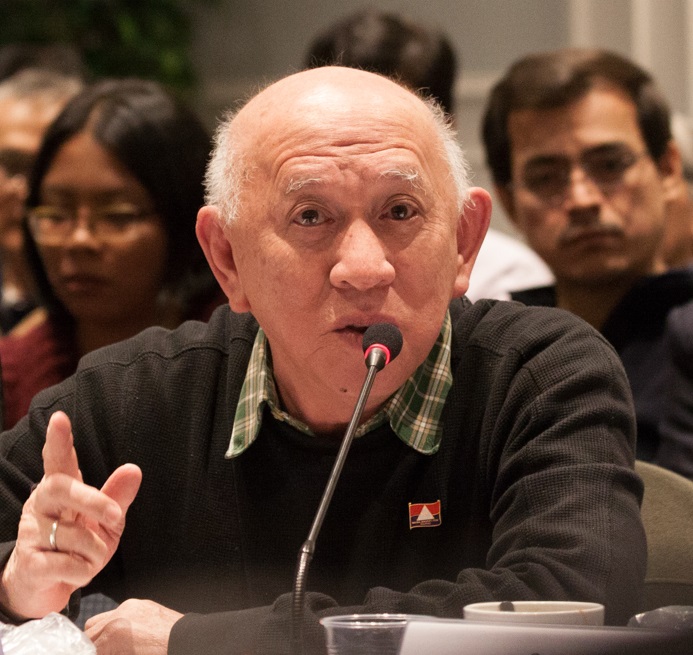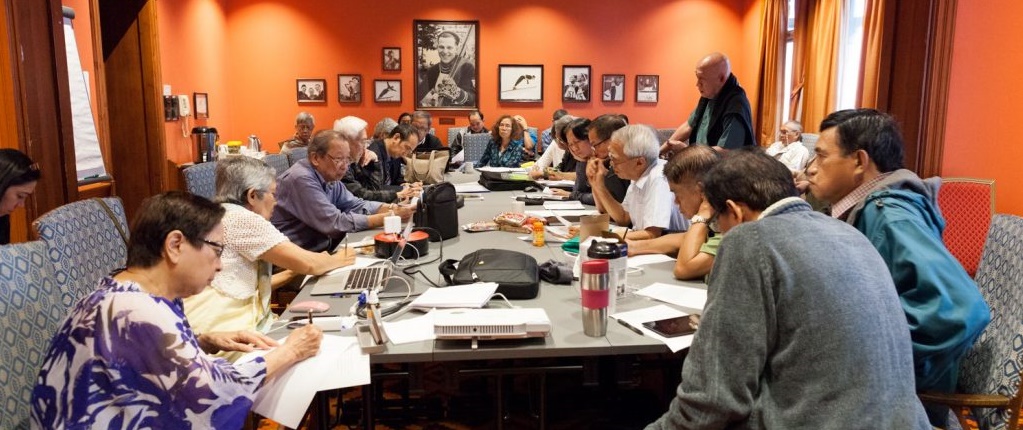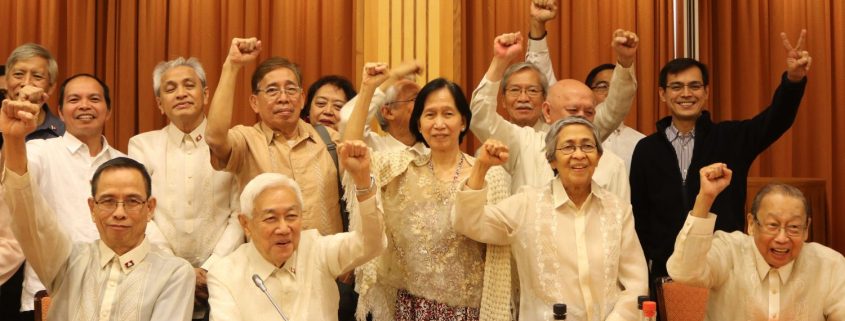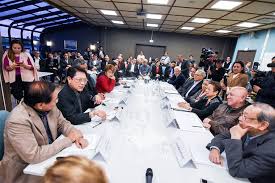Statement of the 7th Ecumenical Church Leaders’ Summit on Peace
November 7-9, 2018, Cebu City
We, church leaders from various denominations and diverse Christian traditions from Luzon, Visayas and Mindanao, gathered to reflect and discern our ways forward to attain peace based on justice in our country. We gathered driven by our faith in God and in our belief that peace is possible. Our coming together is deliberate because of the status of the GRP-NDFP peace negotiations. President Duterte cancelled the fifth round of formal talks last June 2018, formally terminated the peace talks and subsequently declared the Communist Party of the Philippines – New People’s Army (CPP-NPA) as a “terror organization”.
The situation has turned for the worse. Several peace consultants of the NDFP were arrested, and just yesterday, Mr. Vicente Ladlad was also arrested. There were also significant increases in armed encounters between the Philippine military and the New People’s Army (NPA) and alarming reports of an increase in violations of human rights and international humanitarian law that have mostly affected civilians. During our Summit, we learned of the killing of Atty. Ben Ramos, a well-known human rights lawyer in Negros Occidental and just two weeks after the killing of the Sagay 9. We are very much concerned and alarmed by these reports because of our conviction that respect for human rights and human dignity is a basic condition of peace.
There was a bright prospect when the formal peace talks resumed in earnest in 2016 after four years of impasse. Through the third party facilitation of the Royal Norwegian Government, four successful rounds of formal talks were held in 2016 and 2017.
We are thus saddened that the cancellation of the formal peace talks has aborted the signing of an interim peace agreement consisting of a general amnesty for NDFP-listed political prisoners, agrarian reform and rural development as well as national industrialization and economic development agreements and a coordinated unilateral ceasefire. These would have addressed the root causes of the armed conflict – the long-standing issues of poverty, landlessness and inequality in the country.
We affirm our belief that peace is possible through principled dialogue. The talks are still the most viable option to attain a just and enduring peace in the country. A survey by Pulse Asia this year found 74% of Filipinos are aware of the GRP-NDFP peace talks. Of those who are aware, nearly 80% believe that peace talks can end the hostilities between the warring forces.
On this 7thEcumenical Church Leaders’ Summit on Peace, we continue to call on the GRP and the NDFP to:
– RESUME THE FORMAL PEACE TALKS.
– Honor and implement all signed agreements especially the Comprehensive Agreement on Respect for Human Rights and International Humanitarian Law (CARHRIHL).
We make this call guided by the Scriptures:
“But the wisdom from above is first pure, then peaceable, gentle, open to reason, full of mercy and good fruits, without uncertainty or insincerity. And the harvest of righteousness is sown in peace by those who make peace”(James 3:17-18).
Issued and Signed on this day 9thNovember, 2018
(Sgd.)
ARCHBISHOP ANTONIO J. LEDESMA, S.J., DD
Archdiocese of Cagayan de Oro
Co-chairperson, PEPP
(Sgd.)
THE RIGHT REVD. REX RB REYES, JR.
Espisopal Diocese of Central Philippines
Co-chairperson, PEPP
(Sgd.)
BISHOP NOEL A. PANTOJA
National Director
Philippine Council of Evangelical Churches
(Sgd.)
MOST REV. BISHOP EMERITUS DEOGRACIAS S. INIGUEZ, JR.
Co-chairperson
Ecumenical Bishops Forum
(Sgd.)
SR. MARY JOHN D. MANANZAN, OSB
Office of the Women and Gender Commission
Association of Major Religious Superiors in the Philippines – Women
*The PEPP is a platform for 5 church institutions/groups, namely, the Catholic Bishop’s Conference of the Philippines (CBCP), National Council of Churches in the Philippines (NCCP), Association of Major Religious Superiors of the Philippines (AMRSP) with organizations of Religious, Philippine Council of Evangelical Churches (PCEC) and the Ecumenical Bishops’ Forum (EBF), in working for a just and enduring peace by supporting the peace process between the GRP-NDFP.

